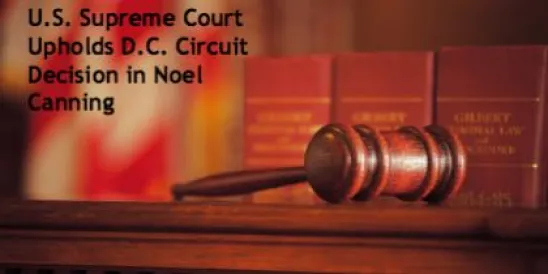Of the many class action-related decisions from the last year, two courts issued holdings that are particularly relevant to defending against class action lawsuits (particularly in the context of the Fair Credit Reporting Act (FCRA)).
Davis v. Universal Prot. Services, LLC, No. 20-CV-01758, United States District Court for the Eastern District of Pennsylvania:
In Davis, the plaintiff (and putative class) alleged that the defendant violated the FCRA by (1) procuring a criminal background check on her; (2) relying on the contents of the criminal background check; and (3) failing to provide her FCRA-compliant notice prior to determining that she was ineligible for employment. The plaintiff alleged that the defendant’s failure to provide FCRA-compliant notice caused her harm by preventing her from challenging and/or having a meaningful discussion about the contents of her criminal background check report.
The defendant challenged the plaintiff’s factual contentions and argued, in the alternative, that the plaintiff lacked Article III standing to pursue her claims under recent Supreme Court precedent, TransUnion, LLC v. Ramirez, 141 S. Ct. 2190 (2021). The Davis court applied TransUnion and agreed with the defendant’s standing argument. It held that, even if the defendant failed to provide FCRA-compliant notice to the plaintiff prior to determining that she was ineligible for employment, the plaintiff did not suffer a concrete harm because, in this case, she acknowledged the accuracy of her history of criminal convictions that were returned on her criminal background check report. Because of this, the Davis court reasoned, the defendant would have determined that the plaintiff was ineligible for employment even if the plaintiff had received FCRA-compliant notice—it held that the plaintiff’s alleged lack of opportunity to have a meaningful discussion about the contents of her background check report could not be proximately connected to any concrete harm, thus the plaintiff lacked Article III standing.
The Davis court’s interpretation of TransUnion has implications outside the FCRA context, as it enhances the “fairly traceable” component of Article III standing with a proximate causation requirement. The deadline to appeal the decision has passed.
Robert Stone v. U.S. Security Associates Inc., No. BC604257, Superior Court of California, County of Los Angeles:
In Stone, the plaintiffs alleged that the criminal background check disclosure form used by the defendant was not compliant with FCRA requirements. The procedural history of this case is complex (it had been pending for more than six years; it was removed, transferred, and remanded; multiple named plaintiffs were presented and either settled their individuals claims, were compelled to arbitration, or had their claims dismissed), but the case ultimately moved forward in California state court without a viable class representative. The defendant, in reliance on the Supreme Court’s decision in California Pub. Employees’ Ret. Sys. v. ANZ Sec., Inc., 137 S. Ct. 2042 (2017) (CalPERS), argued that the plaintiffs could no longer present a viable class representative because the defendant had replaced the disclosure form at issue in the lawsuit more than five years before, and thus the FCRA’s five-year statute of repose had necessarily expired on the claims of all members of the putative class. The defendant argued that the CalPERS decision bars a putative class member from being added as a class representative if an applicable statute of repose has expired on the putative class member’s claim (a distinct issue from whether a putative class member can remain a member of the putative class after the expiration of an applicable statute of repose).
The Stone court ultimately granted summary judgment in the defendant’s favor—it held that it was too late for class counsel to add a new class representative because, due to the limitations of the putative class in the case, the five-year statute of repose had expired on the claims of all members of the putative class. The court’s ruling is currently under appeal. But if the court’s decision stands, it would further reinforce the utility of, and compelling public policy behind, statutes of repose.





 />i
/>i
